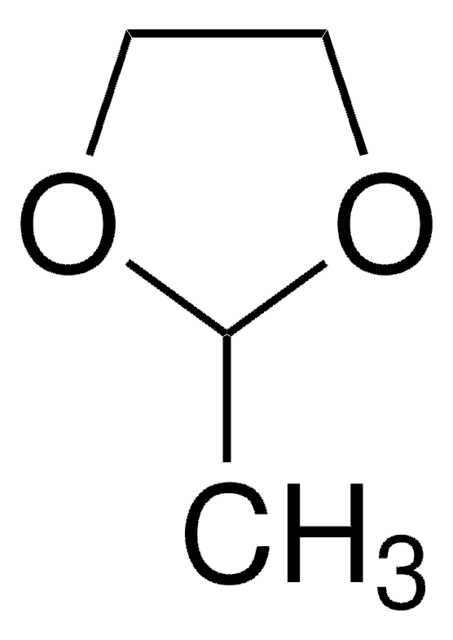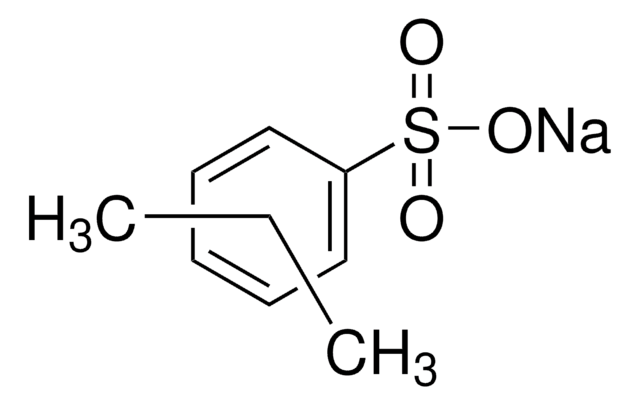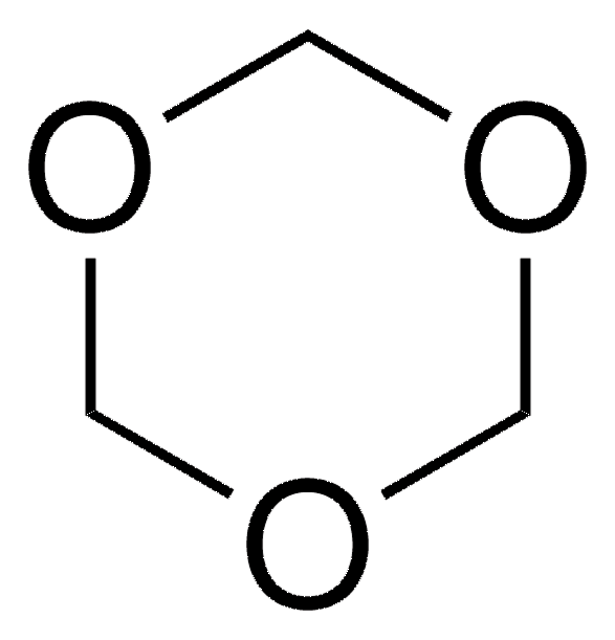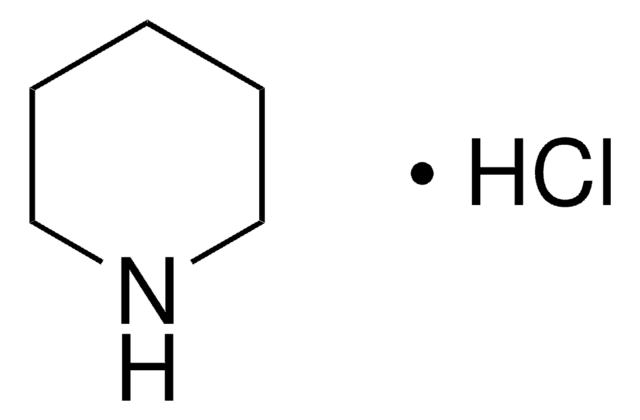8.03553
1,3-Dioxolane
(stabilised) for synthesis
Synonym(s):
1,3-Dioxolane, 1,3-Dioxacyclopentane, Formaldehyde ethylene acetal, Ethylene glycol methylene ether
About This Item
Recommended Products
vapor pressure
133 hPa ( 20 °C)
Quality Level
Assay
99% (GC)
form
liquid
autoignition temp.
274 °C
potency
3000 mg/kg LD50, oral (Rat)
9074 mg/kg LD50, skin (Rabbit)
expl. lim.
2.1-20.5 % (v/v)
reaction suitability
reaction type: C-C Bond Formation
bp
74-75 °C/1013 hPa
mp
-95 °C
transition temp
flash point -6 °C
solubility
soluble 1000 g/L
density
1.065 g/cm3 at 20 °C
SMILES string
O1COCC1
InChI
1S/C3H6O2/c1-2-5-3-4-1/h1-3H2
InChI key
WNXJIVFYUVYPPR-UHFFFAOYSA-N
Related Categories
Application
- Optimization for the efficient recovery of poly (3-hydroxybutyrate) using the green solvent 1, 3-dioxolane: This study developed a successful method for the recovery of polyhydroxybutyrate using 1,3-dioxolane, a green solvent, highlighting its effectiveness and sustainability (C Wongmoon, SC Napathorn, 2022).
- Evaluation of 1, 3-dioxolane in promoting CO2 hydrate kinetics and its significance in hydrate-based CO2 sequestration: This study evaluates 1,3-dioxolane′s role in enhancing CO2 hydrate formation kinetics, underscoring its potential in CO2 capture and storage technologies (Y Yao, Z Yin, M Niu, X Liu, J Zhang, D Chen, 2023).
- A novel dimethyl sulfoxide/1, 3-dioxolane based electrolyte for lithium/carbon fluorides batteries with a high discharge voltage plateau: This paper explores a novel electrolyte system combining dimethyl sulfoxide and 1,3-dioxolane for lithium/carbon fluoride batteries, enhancing their discharge efficiency (C Pang, F Ding, W Sun, J Liu, M Hao, Y Wang, X Liu, 2015).
Signal Word
Danger
Hazard Statements
Precautionary Statements
Hazard Classifications
Eye Irrit. 2 - Flam. Liq. 2 - Repr. 1B
Storage Class Code
3 - Flammable liquids
WGK
WGK 1
Flash Point(F)
26.6 °F - closed cup
Flash Point(C)
-3 °C - closed cup
Certificates of Analysis (COA)
Search for Certificates of Analysis (COA) by entering the products Lot/Batch Number. Lot and Batch Numbers can be found on a product’s label following the words ‘Lot’ or ‘Batch’.
Already Own This Product?
Find documentation for the products that you have recently purchased in the Document Library.
Customers Also Viewed
Our team of scientists has experience in all areas of research including Life Science, Material Science, Chemical Synthesis, Chromatography, Analytical and many others.
Contact Technical Service
















